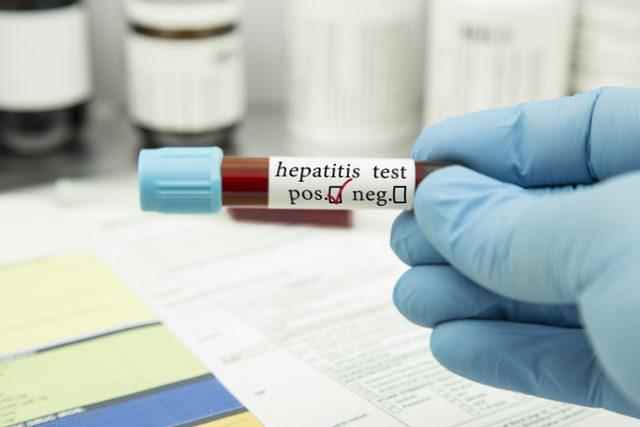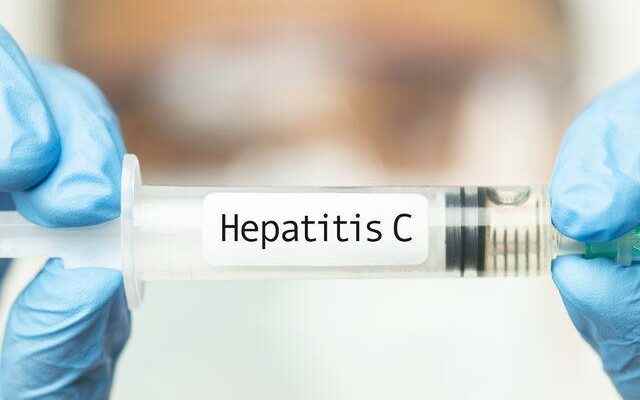Hepatitis viruses, which cause diseases such as cirrhosis, liver failure, and fatal liver cancer, threaten the lives of millions of people. Experts say that 240 million people are infected in the world, especially due to Hepatitis B (HBV), Hepatitis C (HCV) and Hepatitis Delta (HDV) viruses. He stated that he died due to these diseases.
With the press conference held in Istanbul by the Association for Combating Viral Hepatitis (VHSD) and the Turkish Liver Research Association (TKAD) on the occasion of July 28 World Hepatitis Day, the dangers posed by hepatitis infections in the society were highlighted, and the importance of awareness of hepatitis screening programs in the society was emphasized. At the meeting, Istanbul University-Cerrahpaşa, Cerrahpaşa Faculty of Medicine Faculty Member of the Department of Infectious Diseases and Clinical Microbiology and President of the Association for Combating Viral Hepatitis. Dr. Fehmi Tabak, from the Turkish Liver Research Association Board of Directors, Istanbul Medical Faculty Gastroenterology Department Lecturer Prof. Dr. Sabahattin Kaymakoğlu and TKAD Board Member Prof. Dr. Murat Akyıldız took part as a speaker.
“2 MILLION PEOPLE HAVE HEPATITIS B, ONLY 400 THOUSAND ARE AWARE”
VHSD President Prof. Dr. Fehmi Tabak said that the main goal of July 28 World Hepatitis Day is to inform the public about hepatitis disease in the national and international arena, to raise awareness, to draw attention to preventive measures and to remove viral hepatitis from the list of diseases that threaten humanity in the future by informing about treatment methods. prof. Dr. Tabak said, “There are approximately 240 million Hepatitis B (HBV) and 71 million Hepatitis C (HCV) carriers or patients all over the world. It is estimated that there are approximately 2 million HBV and 300-400 thousand HCV carriers or patients in our country. It is a very dramatic situation that 20 percent of them are in the advanced stage, that is, at the stage of cirrhosis. All over the world, close to 1.3 million people die annually due to cirrhosis and liver cancer, which develop as complications of chronic hepatitis caused by HBV and HCV. Only about 400 thousand of them are aware of the situation. The rest are not aware of the situation because it is silent. Of the 700 thousand people who need treatment, only 100-200 thousand are under treatment. Others need to be discovered and treated. There are around 300-400 thousand chronic HBV cases in our country. “We estimate that there are around 300-400 thousand cases of chronic hepatitis C in our country,” he said.
HEPATITIS C IS ELIMINATED WITH 2 MONTHS OF TREATMENT
KKAD Board Member Prof. Dr. Emphasizing that hepatitis viruses are very important risk factors that threaten public health, Sabahattin Kaymakoğlu said: “When hepatitis B virus, Delta virus and C virus cause a chronic infection, it causes gradual inflammation and fibrosis in the liver, that is, hardening of the liver and liver cirrhosis with the increase of connective tissue. If they are not treated, infection with these viruses results in liver cirrhosis, liver cancer and liver failure, and patients die if they do not receive a liver transplant within this picture.In our country, nearly 900,000 people have liver cirrhosis and 80 thousand people have liver cancer. Viral hepatitis is the real perpetrator in about 2/3 of these. Today, we can render the hepatitis B virus harmless with the treatments we have, and we can completely remove the hepatitis C virus from the body with a few months of treatment. Our success in the treatment of hepatitis D virus is a bit more limited. Our target is hepatitis. Treating anyone with C. With an average of 2 months of treatment, a person can completely get rid of hepatitis with a very high success rate ranging from 98-100 percent.
“EVERYONE SHOULD HAVE A HEPATITIS SCREENING AT LEAST ONE TIME”
Noting that individuals with hepatitis B should be followed up with regular follow-ups for life and if it is determined that the liver of the person is damaged, Prof. Dr. Kaymakoğlu said that when treatments are interrupted, irreversible damage occurs in this patient group and concluded his words as follows: “We do not treat every hepatitis B carrier. If there is liver disease, there are drugs that we use in the form of oral pills in the treatment of liver disease. These drugs can make the virus harmless for the body by stopping its reproduction. The person has to use it regularly every day. That’s why those diagnosed with Hepatitis B need to have regular check-ups of 3 to 6 months. Today, 25-30% of hepatitis B carriers in our country need regular treatment. Considering that there are 2 million people, 600-700 A thousand patients need to be treated. But the number of patients who received treatment in 2019 was 122 thousand, and after the pandemic, this number decreased to 115 thousand in 2021. Please make every adult have a screening test for Hepatitis B and C at least once in their life. Diagnosis still living among us There are roughly 200 thousand people who have not taken it, that is, there is a patient with hepatitis C in whose blood the virus has grown. and we don’t know them. However, if diagnosis and treatment are taken, new infections can be prevented.

“COVID PERIOD TAKES TREATMENTS OUT OF CONTROL”
TKAD Board of Directors Prof. Dr. Murat Akyıldız also pointed out the dangers of this situation by explaining that the Kovid-19 pandemic caused the disruption of follow-up and treatment in followed-up hepatitis patients, and said: “We, as associations, as hospital policies, recommended that these patients continue to be followed and treated by telephone and tele-medicine method. We also called on some patients to come back for checkups. The Ministry of Health was also sensitive about extending the report during this period. However, some patients, unfortunately, stopped their medications themselves during this period. It is possible that the drugs they take during the course of the Kovid-19 disease may be harmful due to misinformation or they may not reach the hospital. Unfortunately, when everything was under control with a single tablet a day, they were left without treatment due to problems in reaching the pharmacy. These patients started to come to us with liver cancers.”
Source: DHA
